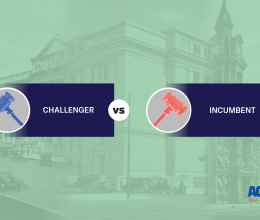The corrections officer was putting on a show for us when we arrived at the Chillicothe Correction Institution (CCI) for their spring re-entry fair.
I arrived the same time as two women who ran a support group for families with loved ones in prison. After the officer checked our IDs and stamped our hands, he told us the worst part of going to prison is when you hear that door slam for the first time.
Then he let the door slam.
CCI is the largest prison in the state, housing over 2,700 men on 72 acres inside the fence. I learned this on the walk across the yard to the gym, where the event was held. For the next four hours, I spoke to an unbroken line of prisoners, all within a year of release, about their voting rights.
Fact Check
Misinformation abounds about people’s rights after receiving a felony conviction. The Wall Street Journal recently published an article about the challenges people face establishing stable employment after prison. The article showed how license restrictions and other collateral sanctions follow people after they finish “paying their debt to society.”
Unfortunately, the article also said people with felony convictions lose the right to vote in Ohio, which is not true. The reporter was quick to correct this mistake when we brought it to his attention. But it’s worth noting that if a journalist for a national newspaper has bad information about voting rights of people with criminal convictions, imagine what the people themselves think.
Even if you have been convicted of a felony, you still have the right to vote in Ohio.
At CCI I had this conversation about voting again and again. So many men either didn’t know they could vote, or had been told they couldn’t. Some who voted before had no idea their voter registration had been canceled upon their conviction, and they now needed to re-register. By the end of the event, I handed out stacks and stacks of our Voting Rights for People with Criminal Convictions card, letting people know they could vote for president in 2016 if they wanted.
Locked Out
While the United States continues to incarcerate people at levels never before seen in history, there are signs that the policies driving mass incarceration are being challenged.
Director Gary Mohr of the Ohio Department of Rehabilitation and Corrections has become an outspoken critic of how the prison system functions as a warehouse for people with mental illness. For the first time in two decades Pell grants to attend college may be opening up to people with felony convictions. Recently, Governor John Kasich announced that Ohio would “ban the box” on state employment applications by removing the question about former criminal convictions starting in June.
But people coming out of prison still face stigma and laws barring them from employment. There is a long road ahead to dismantle the policies and misconceptions that permanently lock people out of the opportunities they deserve upon re-entry.







